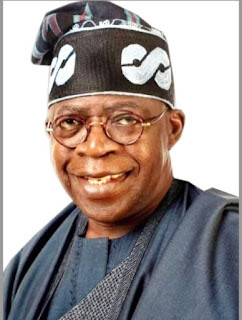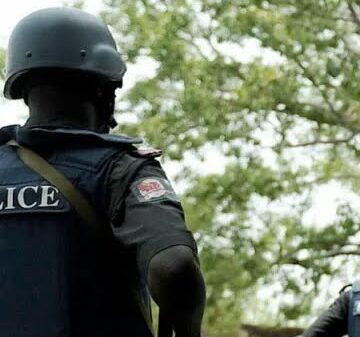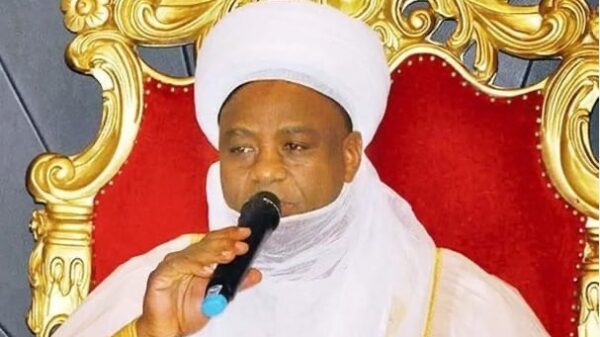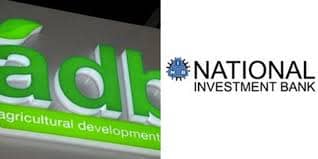Adnan Adams Mohammed
Government of Ghana’s plan to merger two major state banks National Investment Bank (NIB) and the Agricultural Development Bank (ADB) have met stiff opposition.
Various stakeholders of the economy disagree with the idea.
Latest to contribute to the raging debacle is the Head of the Business School at the University of Ghana, who believes the proposed merger would be economically senseless. The government over the years has been holding onto plans to merge ADB and NIB due to the struggles of the two banks.
“You cannot put two big banks together,” he said, adding: “Prudent economic management will not allow merging two state-oriented banks”, Professor Laud Mensah said in an interview last week.
“Any outcome from the decision-making level is likely to create imbalances in the bank’s balance sheet.”
Professor Mensah called out the finance minister, who is supporting this initiative, to provide a paper indicating the economic value they intend to generate by allowing ADB to acquire NIB.
Additionally, he suggested that external funds would be the best way for an economy to divert.
Professor Mensah stated that if ADB absorbs NIB, their balance sheets would be weakened.
NIB, being cash-trapped, needs an external investor to inject funds into the bank.
Already, the Minority in Parliament has expressed its opposition to the government’s plans to either collapse the National Investment Bank (NIB) or merge it with the Agricultural Development Bank (ADB).
The Spokesperson on Finance, Isaac Adongo, speaking to journalists in Parliament fortnight ago alleged that this plan is merely a smokescreen to sell off the two banks after their merger to government cronies as part of State capture efforts.
“It is clear that this is not about the interest of NIB. This is the last step towards passing through the back door to acquire NIB and ABD for themselves in a state capture,” he said on Thursday, September 28.
The Minority has asked the government to pay the debt owed to the bank and further proscribed measures that will make it viable.
“Government should just restructure the balance sheet of NIB to swap all the NIB debt that it owes to government and give government equity. Government says it doesn’t have money to capitalize the bank, but it has given 500 million debt to NIB, it has given 800 million debt… The two will give you 1.3 billion. It is your money. You owe the bank. The money is already sitting there. Commit to saying that this is my contributing towards capitalisation so that we issue shares to you and move the money to equity.
Hon Adongo said the move by the imminent collapse and subsequent acquisition by ADB will lead to the loss of about 800 jobs.
The MP further indicated that contractors NIB engaged to work on government projects are yet to be paid by the Finance Ministry.
“As a result of that, NIB has incurred GHC1 billion on its loan books, resulting from Ken Ofori-Atta’s refusal to pay, now you say NIB is weak.”
Also, a banking consultant, Dr Richmond Atuahene, has condemned the proposed merger idea.
“I don’t think merging NIB and ADB is solving any problem, it is not a solution at all,” the Consultant reacted to the government idea.
He contends that the government should not rush on the matter but take its time to conduct a diagnostic study of the two banks first.
According to him, the NIB has suffered from corporate government crises in addition to its current fiscal challenges noting that the buildup to the current point started in 2016.
He added ADB is also going through the same challenges based on a report published in 2022.
“…ADB does not have the capacity to acquire NIB. He said even if government refinances ADB, it may not be enough to take over NIB’s debts.”
For this reason, he suggested that both banks – NIB and ADB be recapitalised, explaining that “you don’t bring a weak institution to buy a bad institution. You have what we call a good bank buying a bad bank, there is a theory there but the two of them are not good for anything.”




























